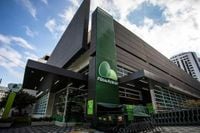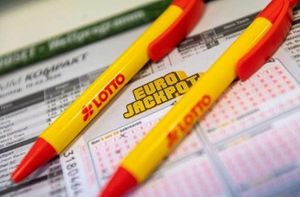The Grupo Pão de Açúcar (GPA) has reported a significant reduction in its net losses for the first quarter of 2025, with figures showing a 74.4% improvement compared to the same period last year. The company’s net loss now stands at R$ 169 million, a result that has been met with mixed reactions from investors and analysts alike.
Released on May 6, 2025, the financial results indicate that GPA's adjusted EBITDA reached R$ 409 million, marking an increase of 9.9% from the previous year. This improvement in EBITDA reflects operational efficiencies and a strategic focus on enhancing profitability. Despite the positive trend in EBITDA, the company’s shares fell sharply by 2.31% to R$ 3.81 on the day of the announcement.
Analysts had anticipated a net loss of R$ 175.5 million and an EBITDA of around R$ 326 million for the quarter, as reported by InfoMoney. The actual results, while better than expected, still highlighted the challenges the company faces in a competitive retail environment.
In terms of revenue, GPA saw a 3.9% increase, bringing its net revenue to R$ 4.767 billion. This growth was driven by a 6.5% increase in same-store sales at its flagship Pão de Açúcar brand, which emphasizes premium offerings and high-quality perishables.
Moreover, the Extra Mercado brand experienced a similar trend, with same-store sales growth of 6.6%. This consistent performance is seen as a testament to the company's resilience and effective management strategies, particularly following the implementation of a category management project that began in late 2024.
However, the overall sales figures were affected by seasonal factors, notably the shift of the Easter holiday to the second quarter of 2025, which impacted sales in March. When adjusted for calendar effects, the same-store sales growth was a more robust 7.3%, indicating a solid underlying demand.
On the operational front, GPA opened 60 new stores in the past year, contributing to an 18.8% growth in its proximity format. The Allies format also saw a 17.1% increase, reflecting the company's commitment to expanding its footprint in the retail market.
Despite these gains, the cost of goods sold rose by 3.5% year-on-year, totaling R$ 3.42 billion. General expenses also increased, reaching R$ 950 million, which adds pressure to the company's profitability.
Financial leverage remains a concern, with net debt reported at R$ 2.4 billion at the end of the quarter. The financial leverage ratio, which compares net debt to EBITDA, decreased slightly to 2.8x from 3.0x in the first quarter of 2024. Analysts have pointed out that while the reduction in leverage is positive, the company still faces challenges in managing its debt levels.
The market's reaction to GPA's financial results has been notably volatile. On May 6, shares of GPA experienced a sharp decline, with trading suspended temporarily as the stock fell by over 20% following the earnings report. At one point, shares were down by 13.65% to R$ 3.65, highlighting investor concerns about the company's future performance.
Market analysts have described GPA's earnings as a mixed bag. While there were operational improvements, the high level of debt continues to be a significant concern. Analysts from Goldman Sachs noted that the results were in line with expectations, but the effects of the calendar and seasonal shifts negatively impacted the quarter's performance.
In a report, analysts from BTG Pactual emphasized that GPA remains a risky option among food retailers, despite recent operational improvements. They stated, “The process of restructuring to recover sales and profitability is ongoing, and the pace of deleveraging remains a central focus given the high-interest rate environment.”
Conversely, Itaú BBA pointed out that GPA maintains one of the most resilient business models amidst challenging macroeconomic conditions, particularly noting its focus on non-discretionary products that cater to higher-income consumers.
As the company navigates these challenges, it is also undergoing significant changes in its governance structure. An Extraordinary General Meeting (AGE) held on May 5 resulted in the complete removal of the previous Board of Directors, with Rafael Ferri securing the highest number of votes for a new board position. Ferri's election was part of a broader strategy pushed by businessman Nelson Tanure, who has been vocal about the need for governance changes at GPA.
Despite securing a position on the board, Tanure faced setbacks as two of his preferred candidates were withdrawn before the vote. However, Ferri's election alongside Edison Ticle and André Coelho Diniz reflects a shift in the company's leadership aimed at revitalizing its strategic direction.
The consensus among analysts remains cautious, with recommendations for GPA ranging from neutral to hold, reflecting the uncertainty surrounding its financial health and market position. Goldman Sachs has set a target price of R$ 3.10, while Jefferies suggests a target of R$ 4.00, indicating potential upside but also highlighting the risks involved.
As GPA continues to adapt to the evolving retail landscape, investors will be watching closely to see if the company can sustain its momentum and overcome the challenges posed by high debt levels and market competition. The upcoming quarters will be crucial for GPA as it strives to solidify its position in the Brazilian retail market.




